From Darkness to the Stars: 11 Christopher Nolan films from the Worst to the best
Categories: Celebrities | Cinema | World
By Pictolic https://pictolic.com/article/from-darkness-to-the-stars-11-christopher-nolan-films-from-the-worst-to-the-best.htmlThe long-awaited "Argument" is an occasion to recall the entire filmography of Christopher Nolan. But, arranging his full-length paintings from the "worst" (there is simply no such thing) to the best (there seems to be one), Esquire did not pursue the goal of setting ratings. Nonlinear narration is the basis of the director's method.
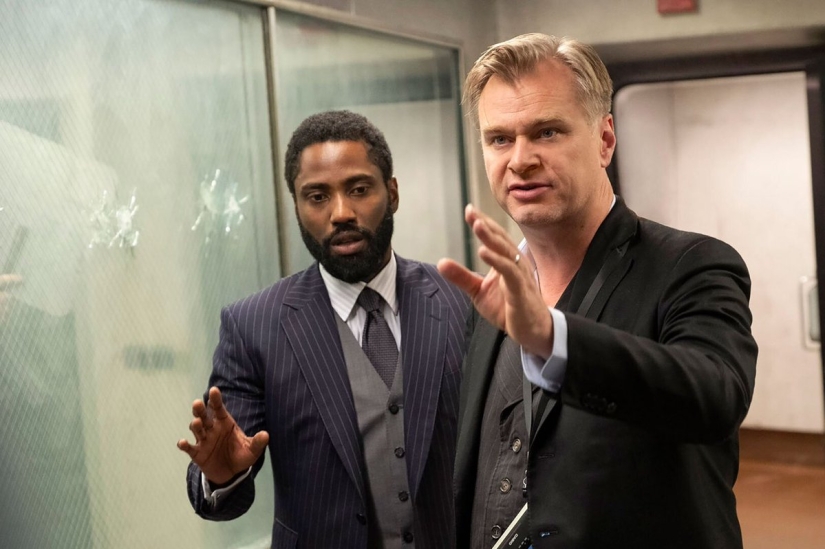 Each of Nolan's films is a mechanical clock that lies almost all the time in order to tell the viewer the crushing truth once. By arranging his tapes in a special way, we specifically violate the chronological order of their release. And now we ourselves are wondering: will it be possible to tell a whole story about the director, imitating his relationship with time?
Each of Nolan's films is a mechanical clock that lies almost all the time in order to tell the viewer the crushing truth once. By arranging his tapes in a special way, we specifically violate the chronological order of their release. And now we ourselves are wondering: will it be possible to tell a whole story about the director, imitating his relationship with time?
The confusion in the plot of the last part of Nolan's Batman trilogy happened, it seems, because of the author's unwillingness to repeat himself, unwillingness to play without risk. After the success of The Dark Knight and the death of Heath Ledger, Warner Bros. She insisted on cloning the Joker's image. And she offered Leonardo DiCaprio as the villain of the Riddler, and Leonardo DiCaprio as the actor who will play him.
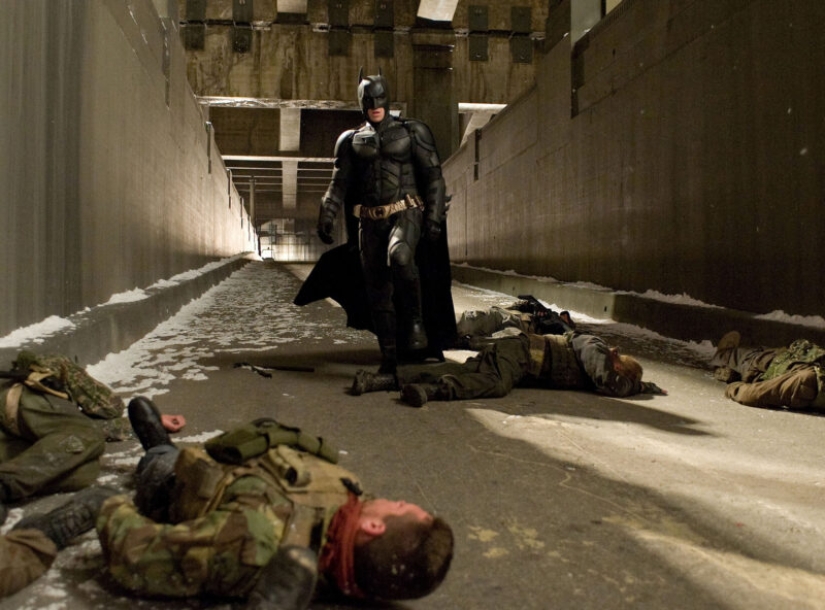
But Nolan would have been bored in this shadow theater — so he bet on the anarchist Bane, an animal with an ideology, a monster with a sense of self-righteousness. Years later, Bain would be quoted in his speeches by Donald Trump and opponents of the Black Lives Matter movement. But in 2012, when the film was released, he was unlucky enough to be on the adjacent pages of history with the Occupy Wall Street movement.
And Batman, who sought to protect everyone, suddenly turned out not to be a friend of the youth (like the "Avengers"), but an ally of boring and decrepit right-wing conservatives. Critics, who have always been considered supporters of Nolan, crushed the film.
But the point, of course, was not only in the unintentional political color of the picture (who cares about it at all?): the plot turned out to be chaotic and pretentious, like the last word in court, and the actors — even such brilliant ones as Marion Cotillard - seemed to be left to themselves.
The third full meter in Nolan's filmography, whose predecessors were the budget, but inventive "Pursuit", filmed in England, and the sensational "Remember", which opened America for the director.
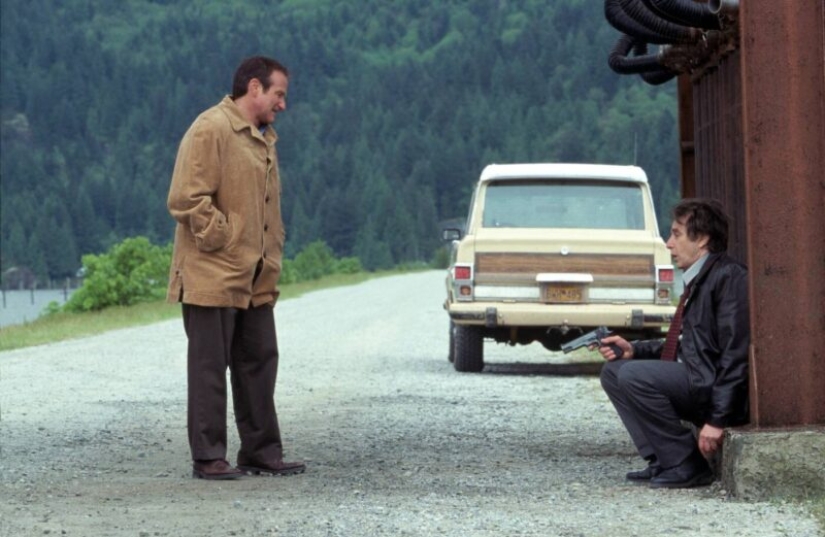
As is often the case with prodigies who appeared out of nowhere, Nolan was immediately offered a huge budget, the best stars (Al Pacino and Robin Williams) and a stranger (and he was used to writing with his brother!) the script. Moreover, the material was doubly secondary: The manuscript of the American Hillary Saitz was based on the 1997 Norwegian thriller of the same name with Stellan Skarsgard.
The film was produced by Steven Soderbergh, who played a big role in promoting "Remember" (see below). But he didn't support Christopher and Jonathan Nolan when they wanted to write the script themselves. The result is a film with the strongest acting, skillful directing and a rare increase in tension for Nolan. But with a story that the viewer forgets almost instantly.
But moviegoers who are used to watching movies all night long will surely like how Nolan and Al Pacino turn the feeling of insomnia into a viscous coordinate system. These people see the world as we do, and we see it as they do. And you can forgive anything for this film.
The hero of Christopher Nolan's debut film is a young writer who does not know what to write about, and in order to drive the emptiness out of his life, he begins to follow people on the street.
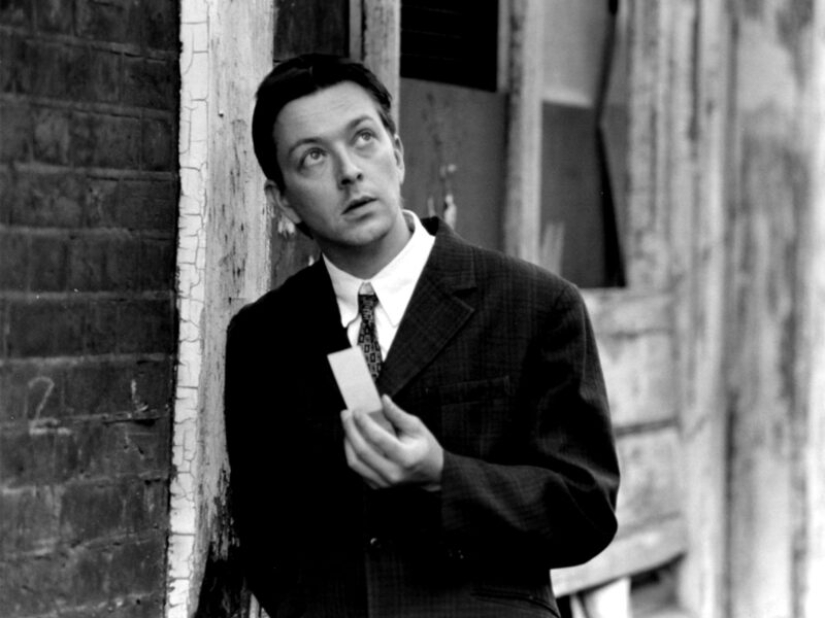
One of them, named Cobb (like DiCaprio's character in "The Beginning"), takes over his imagination so much that the hero begins to imitate him. Now, twenty years later, Nolan's first story seems almost autobiographical. After all, Nolan is in a sense a collection of all the cliches that make up success stories.
The director is self-taught, who learned the craft from other people's films. A colorblind person who has given his stories a certain color and emotional range. A lefty who does everything differently from others. A fan of the film, who will later turn out to be the most stubborn of dinosaurs — and will continue to be a commercial author while others (Spielberg, Zemeckis) will puzzle over how to adapt to the new world.
In "The Pursuit," Nolan is not only his own director, but also a cameraman and producer. And the shooting stretches for a year, because absolutely all the participants, except Nolan, have a permanent office job. But the speed with which the debutant turns from an insecure imitator into a calm keeper of traditions is amazing.
The object of persecution in "Persecution" is not noir; Nolan, as it turns out, does not need a stranger. A stubborn novice tries to grasp the very essence of cinema as the art of hypnosis. And even without the discounts that debutants usually get, he succeeds.
And here's a movie about magicians — and, by the way, Christopher Nolan's fifth film in the top 50 on the IMDb website. But how he ended up there is not entirely clear: for a story about a magic nail, this movie is too technical and pedantic.
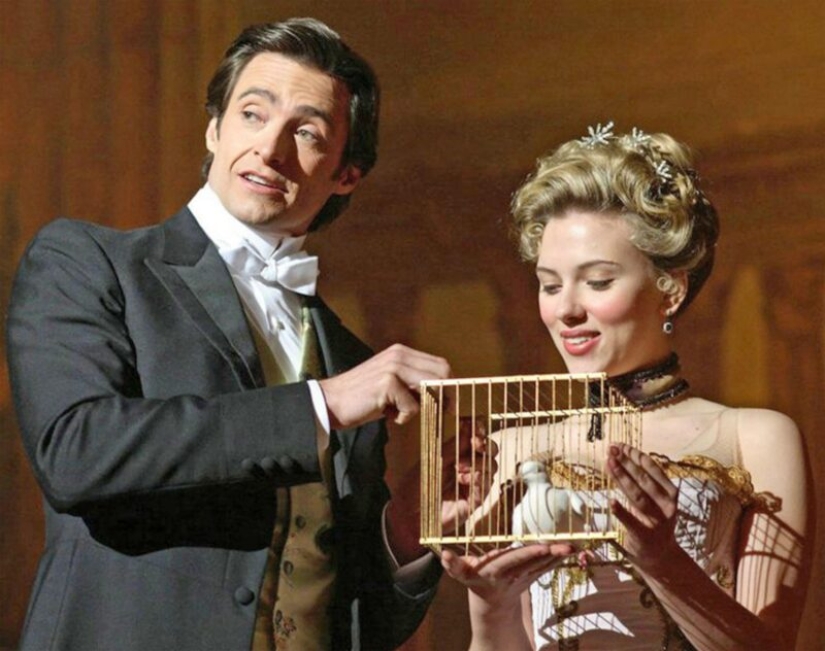
Perhaps the Nolans are being let down again by working with someone else's material — the brothers wrote a script based on a novel by Christopher Priest. Perhaps the matter is in the neighborhood of the film with the charismatic "Illusionist", released in the same 2006 and mixed the "Prestige" of the card.
Or the fact that the conflict of two equally interesting (and generally positive) heroes is not Nolan's forte, whose characters usually fight either with memory, or with dreams, or with the elements, or with themselves. Christopher Nolan is not Michael Mann to make a movie about the sparring of sullen men.
He is interested in the rules in any fight, but real heroes are bored to play by them. So it turns out that in the rivalry of conscientious magicians, played by Hugh Jackman and Christian Bale, no one to bet on. The only joy is that the heroes are again driven by love and the desire to create, if not to resurrect, then at least to take revenge (and free themselves from pain).
Actually, "Batman: The Beginning" - an example of heroic crisis management. Because the late Joel Schumacher and the restless Tim Burton turned the franchise into something else.
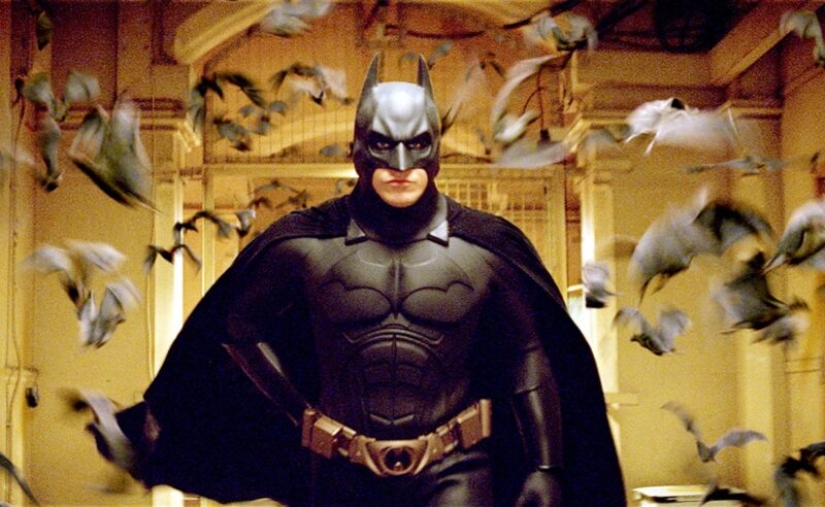
The puffy Michael Keaton seemed to embody Burton's indifference to the hero himself. And the nipples on George Clooney's suit gave an exhaustive idea of Schumacher's seriousness. And suddenly Batman was reborn — and turned out to be a hero as deep as the cave in which we first find him.
"Batman: The Beginning" - an impeccable teen movie about turning weakness into strength and overcoming fear. A boy who was scared of bats on stage in the opera feels responsible for the death of his parents; but it is the bat mask that eventually becomes a symbol of his courage and will. The orphan hero is so obsessed with raising his spirit and hardening his body that he even makes weapons himself.
And then it comes to everyone that Batman is our "Brother". Shot almost simultaneously with the boring "Superman" (2006) and before the funny "Iron Man" (2008), "Batman" becomes the starting point in the annals of modern film comics.
And Nolan dodges the temptation to become for the DCEU (DC Extended Universe) something like Kevin Feige from the MCU (Marvel Cinematic Universe) — and gives up the Iron throne to Zack Snyder in time. Another proof that the wise man knows how to appreciate time.
"Argument" — the most complex, spectacular and outwardly successful of Nolan's attractions. He pays for IMAX tickets with the first scene.

And to understand the choreography of fights between heroes from the future and heroes from the present, you go to the cinema twice or three times. The adventures of the heroes — with the breaking of treasuries, the abduction of beauties, the storming of fortresses and the pursuit of robberies - surpass everything that James Bond and Ethan Hunt have ever experienced.
And the film on which the film was shot seems to keep the fingerprints of all the people on earth who have devoted themselves to creating an entertaining movie. But after the credits, you suddenly discover that you haven't fallen in love with any of the characters — except maybe that quiet guy played by Robert Pattinson.
And we were left without the usual homework from Christopher Nolan, a self-taught director who has long been a professor of any exact sciences and any fine arts for us. And it's all very strange.
A man who can only remember the last fifteen minutes of his life is trying to avenge his wife's death.
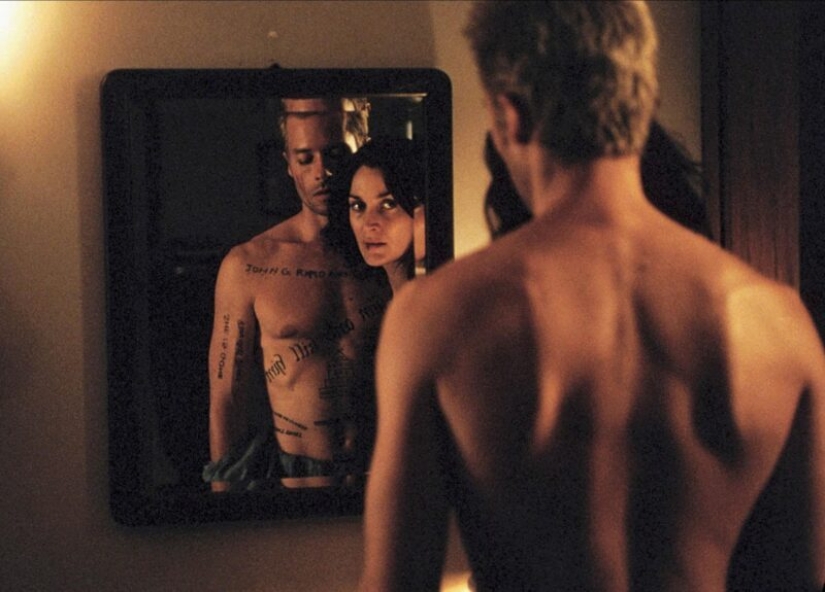
"Memento" ("Remember" in our box office) — Nolan's first American film with a six-figure budget, stars (Guy Pearce from "Secrets of Los Angeles" and Carrie-Anne Moss from "The Matrix") and a promotional campaign that began in Venice-2000 and ended at the "Oscar-2001".
And at the same time — an absolutely free author's statement and a declaration of the method to which Nolan will be devoted for at least another twenty years. And it's not just a non-linear narrative. And not only in the transitions from external to internal focalization of history. And not in riddles and references that amuse the ego of the audience — the same self-taught film critics as Nolan himself.
The thing is different: love (and its derivative, the rage of revenge for the loss of love), which is absent in the "Pursuit", but plays an important role in all of Nolan's subsequent films, here for the first time becomes the same unit of measurement as distance and time. The hero forgets everything — but not the death of his wife.
A minor heroine, to whom her husband, who has lost his memory, gives insulin injections every day, turns the clock to test the strength of her husband's feelings at the cost of her life.
In the following films, Nolan will focus on other manifestations of love: a child to his parents ("Batman"), a creator to art ("Prestige"), a father to children ("Interstellar"), a citizen to the country "(Dunkirk"), a mother to her son ("Argument"). But in each of his works, feelings will invariably subordinate the passage of time, the power of the elements and the flight of the planets.
And at the same time, there is a problem in the film that will make itself felt more than once in Nolan's work. By cutting the plot into pieces and mixing them, the director does the same with the emotions of the viewer. The intensity of passions does not increase, experiences do not intensify, and we have to analyze the cascade of finals rather than feel it. But everything falls into place on the second viewing.
By the way, it is after "Memento" that Nolan gets a reputation as a commercial director, whose films, despite their complexity, the audience is ready to go twice. The funnier it is that the picture itself could not find a distributor in America for a long time. Despite successful screenings in Venice, Toronto and at Sundance, distributors from the USA were afraid of Memento.
Among those who refused it was Harvey Weinstein. But the situation was saved by Steven Soderbergh, who had nothing to do with Nolan's project — but, becoming his fan, literally urged distributors to buy the film. Since then, Nolan remains, perhaps, the only director-screenwriter who always brings money to the studios — and therefore he is allowed to shoot whatever he wants.
If "Batman: The Beginning" is Nolan's "Childhood" (by the way, Batman's logo flashes in "Pursuit" and "Memento"; probably, this is Nolan from the future sending signs to himself), then "The Dark Knight" is already his "Adolescence"; a bitter story about parting with clear attitudes to life.
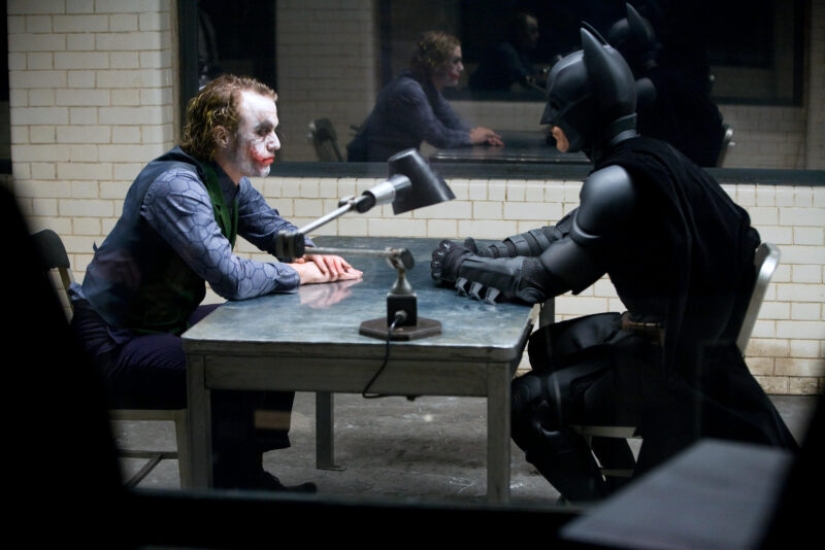
The escalation of conflicts — both internal and external - in "The Dark Knight" is such that the previous film against its background seems like a boring exposition to the real action. In Nolan's paintings, there are many fights between men who have devoted their entire lives to training the mind, body and spirit, but Batman's battle with the Joker is the most epic of them.
And it's not about the unconditional talents of the actors (the same Christian Bale in "Prestige" is somehow lost; but Hugh Jackman does not shine there either), but that the Joker wanted to spit on the dueling code. In "The Dark Knight" there is a heady chaos, which is not found in other, strictly structured, Nolan films.
And this entropy (a word that will be heard more than once in the "Argument"; we are preparing you for it) makes Batman himself change, turning him into the first superhero who grows and develops from film to film. And yes, there is Heath Ledger and his will not to be serious - to anyone and never. Nolan himself does not heed this will — and thank God.
An adventurer capable of penetrating into other people's dreams descends to the lowest of the circles of this hell for the sake of his beloved.
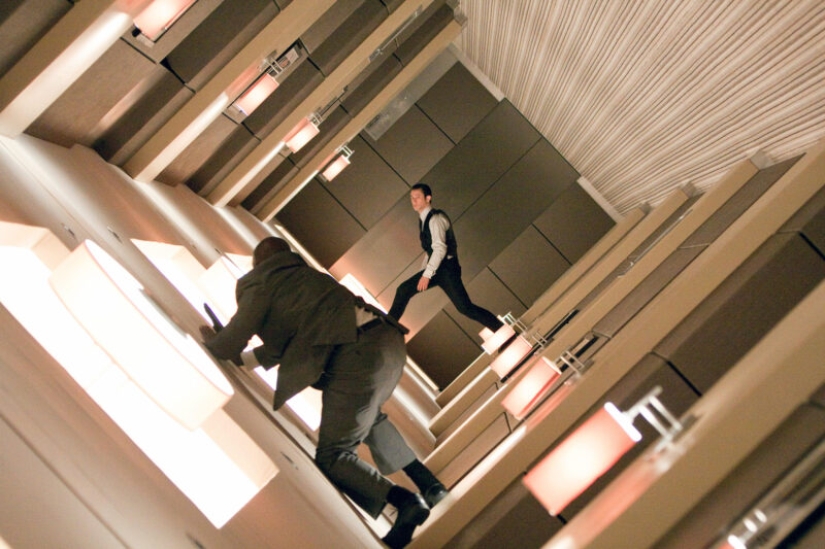
The "Beginning" released after the "Island of the Damned" finally turns DiCaprio from a teenage hero (which he remained even in the scenes of married life from the "Road of Change") into a man who has something to regret.
Countless semantic and ornamental quotations (such a classification of functional references in art was proposed by researcher Uri Gershkovich) of Nolan cease to seem like a show—off - just a person telling a fundamental story, and there is no avoiding coincidences and eternal images.
And the audience finally learns the rules of the game, which turn out to be not so difficult: all you need is to follow the spinning top. The monumental construction of the film turns out to be easy to lift due to the fact that the characters are driven by love. It's like in the "Walking Castle".
A war movie that violates all the rules of a war movie. The enemy is impersonal, and the heroes are turned into mud-stained extras. The conflict of people is replaced by the dispute of the elements: water and fire, sand and sky. Time becomes the judge, but this judge does not intend to explain the rules of the game to anyone.
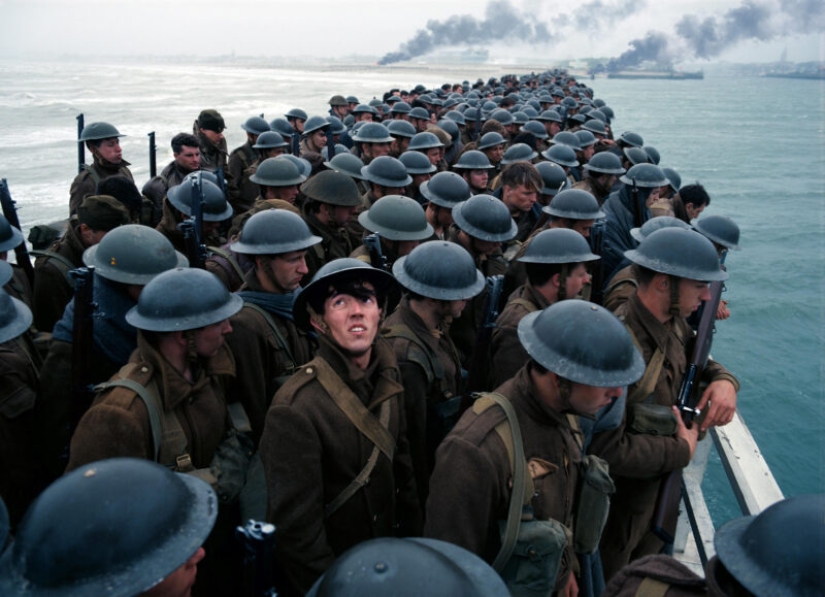
Skilful editing of three storylines (one lasts a week, the other a day, the third a matter of hours) will bring the old-fashioned genre in line with the tempo of the new viewer. And shooting on film and sound, which can be fully heard only in IMAX, will prove that 3D and VR are possible without glasses and helmets.
At the same time, the immersiveness of "Dunkirk" lies not only in its entertainment, but also in the mental work into which it draws the viewer. The history of the film is dotted, so we ourselves have to connect the lines and empathize with the heroes much more than is customary in an adventure or epic war movie.
In Interstellar, the spacecraft's onboard computer kindly allowed astronauts to set a "sense of humor level" for it. And it seems that this was a response to the eternal claim to the Nolans that there is no self-irony in their films (and just irony, too).
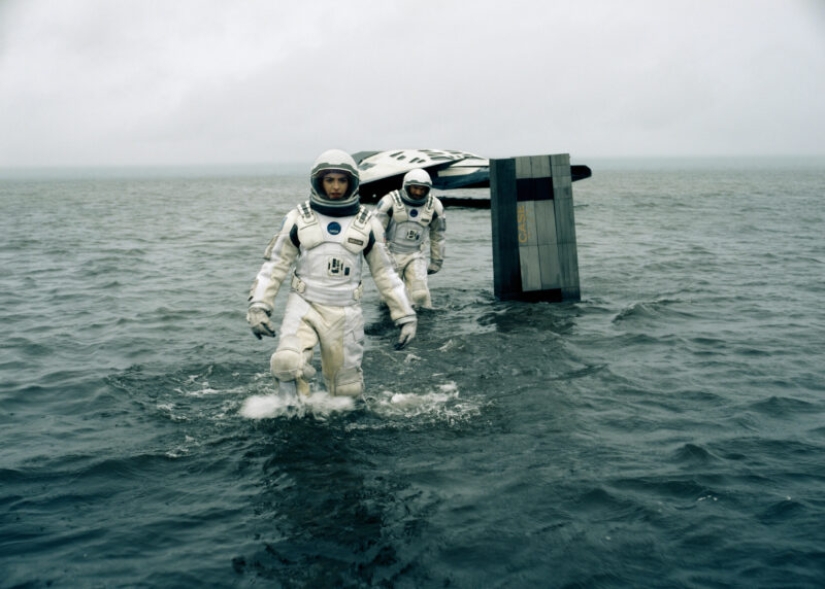
There will be even more jokes in the "Argument" — and at the same time it will turn out that John David Washington from "Footballers" and "Black Clansman" is the best delivery service for these jokes. But it is after Interstellar that you realize that Nolan's seriousness is the best thing in it.
And he, unlike, for example, Darren Aronofsky, can be forgiven for any pathos. There are enough storytellers and directors in the world who are able to heal the viewer with irony and comfort with anecdotes — but there are only two Nolans with their passionate academicism.
Who else has Hans Zimmer's cosmic music on the church organ? Who else has the audacity to scatter lines from a poem like stars across the black sky (Dylan Thomas - Wikipedia will tell us later) about the struggle of light and darkness? Who else is so much in awe of book knowledge that turns a children's library into a place where the world will be saved?
And who else among the directors is not ashamed of his almost religious belief in love as a force capable of subjugating matter, time, and death itself? There is so much idealism and humanism in Interstellar that the author simply does not have the strength for humor. Besides, he probably understands that we will laugh ourselves off from his desperate call to get better.
Keywords: Star | Selection | Director | Films
Post News ArticleRecent articles

It's high time to admit that this whole hipster idea has gone too far. The concept has become so popular that even restaurants have ...

There is a perception that people only use 10% of their brain potential. But the heroes of our review, apparently, found a way to ...
Related articles

There is a perception that people only use 10% of their brain potential. But the heroes of our review, apparently, found a way to ...

Under the motto "let everyone know" people were writing on the pavement (and not only) what it tells the heart. And sometimes it ...

Taxi ride like a lottery — you never know if you will pull the winning ticket. Even the official services like Uber does not ...

New Year's is a time to surprise and delight loved ones not only with gifts but also with a unique presentation of the holiday ...